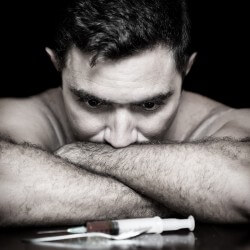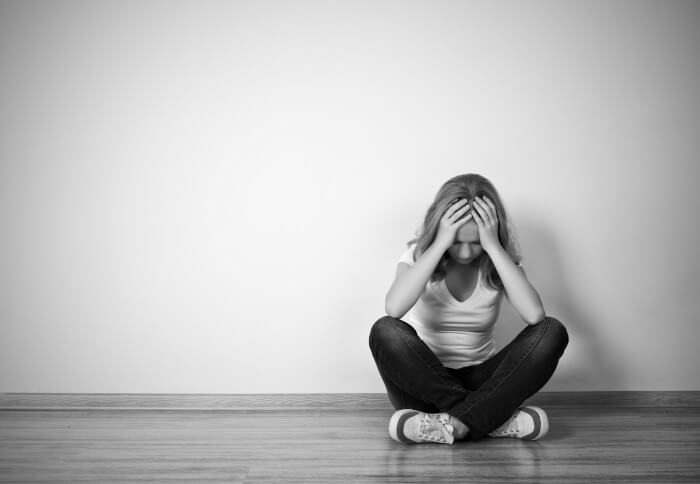
For anyone who has suffered from an addiction to heroin, the idea of not obtaining and using this powerfully addictive substance may be a deterrent to seeking help. Withdrawal from opiate drugs, such as heroin, can be a traumatic and unpleasant experience. Without encouragement and help, someone who is actively using heroin on a regular basis may choose to continue using simply to avoid the withdrawal and detoxing phases of recovery. However, it is important to remember, and to help someone who is addicted to heroin, see that the withdrawal symptoms from heroin can be overcome with the right treatment, support and desire to stop abusing illicit drugs.
Physical Heroin Withdrawal
Heroin is an opiate drug that works by suppressing the central nervous system. According to the experts at the National Institute on Drug Abuse, heroin slows breathing and an overdose can be fatal. Once the body has developed a physical dependence on these types of drugs, physical withdrawal symptoms can begin in as little as several hours from the most recent dose.
The symptoms may include:
- Cold flashes, including chilly, “goose” flesh
- Muscle twitches, including random kicking movements
- Bone and muscle pain
- Restlessness and insomnia
- Diarrhea
- Vomiting
These symptoms are sometimes referred as being, “dope sick,” and users will often use heroin to “get well,” rather than to “get high.” The most important thing to remember about this part of heroin withdrawal is that that worse of the symptoms generally pass in a few days, depending upon how long an individual has been abusing heroin, how much heroin is consumed, and how often. With the help of a professional treatment center and a formal detox program, there are even medications that can help an individual make it through the roughest parts of the detox and withdrawal period. According to the New York State Department of Health, the drug buprenorphine, marketed under the trade name Suboxone, is a medication that can alleviate “dope-sickness.”
Other Symptoms of Heroin Withdrawal
Many times, drug users will abuse drugs to avoid dealing with real issues in their lives. They may suffer from an undiagnosed or untreated co-occurring disorder, for instance. When this is the case, the lack of drugs in the system to alleviate those symptoms may cause the condition to manifest once the drugs begin to wear off. Part of the disease of addiction includes the cravings that occur once an individual has become addicted to a drug. From a psychological perspective, when an individual knows that using heroin would alleviate their physical symptoms, they will crave the drug in order to feel better. When an individual has become dependent upon other types of opiates, such as prescription pain medication for a temporary injury, they may experience some withdrawal symptoms when they stop taking the drugs. However, they may not be aware that the symptoms are being caused by withdrawal; therefore they do not crave the drug on a psychological level, according to the U.S. National Library of Medicine’s Medline Plus.
Is Heroin Withdrawal Life-Threatening?
 Going through heroin withdrawal isn’t easy. It can be made easier with the help of professionals and others who can provide counseling, medication if needed, and a friendly ear. The good news is, however, that heroin withdrawal is not usually life-threatening. After a few hours or a short number of days, the physical symptoms will subside and the recovering addict can begin a full treatment program. It is imperative to note that the immediate detox phase, by itself, is not a treatment. Without a treatment and recovery plan, the drug user will return to using drugs. The cravings that a heroin user experiences can linger after the majority of the withdrawal symptoms have dissipated, so the quicker he or she enters a treatment program, the better their chances for recovery. The use and abuse of heroin, on the other hand, can be life-threatening. Getting help for an addiction is the best way to stop using drugs and to find oneself on the path to a sober life filled with opportunity and success. If you or someone you love is facing the prospect of heroin withdrawal, or if you have any concerns about how and where this process should be engaged, please contact us here at Axis. Our staff of trained and caring professionals has the experience necessary to answer your questions and help you through the recovery process.
Going through heroin withdrawal isn’t easy. It can be made easier with the help of professionals and others who can provide counseling, medication if needed, and a friendly ear. The good news is, however, that heroin withdrawal is not usually life-threatening. After a few hours or a short number of days, the physical symptoms will subside and the recovering addict can begin a full treatment program. It is imperative to note that the immediate detox phase, by itself, is not a treatment. Without a treatment and recovery plan, the drug user will return to using drugs. The cravings that a heroin user experiences can linger after the majority of the withdrawal symptoms have dissipated, so the quicker he or she enters a treatment program, the better their chances for recovery. The use and abuse of heroin, on the other hand, can be life-threatening. Getting help for an addiction is the best way to stop using drugs and to find oneself on the path to a sober life filled with opportunity and success. If you or someone you love is facing the prospect of heroin withdrawal, or if you have any concerns about how and where this process should be engaged, please contact us here at Axis. Our staff of trained and caring professionals has the experience necessary to answer your questions and help you through the recovery process.


